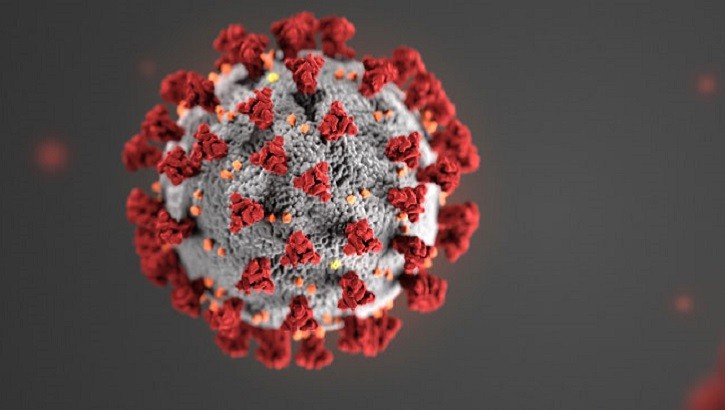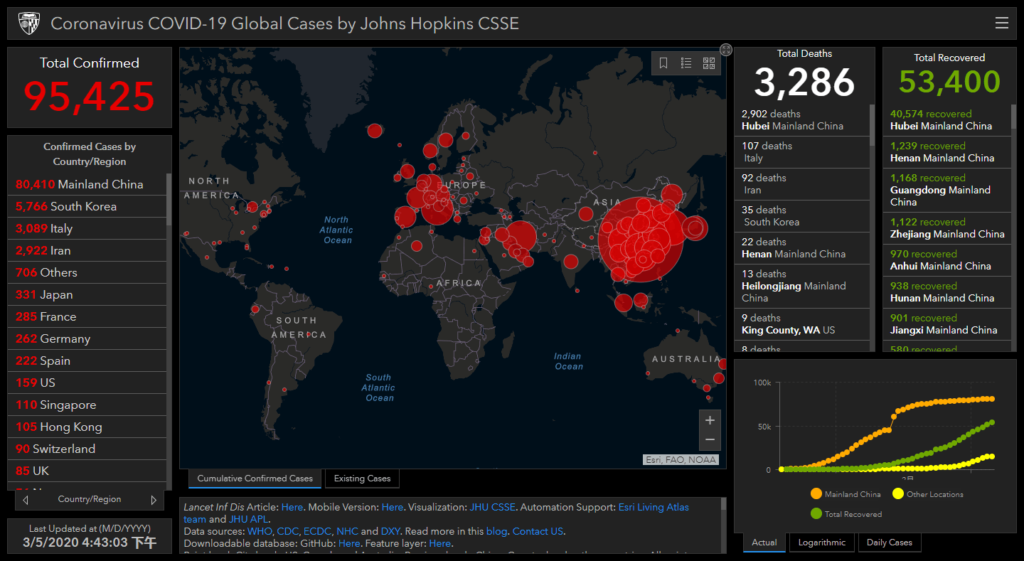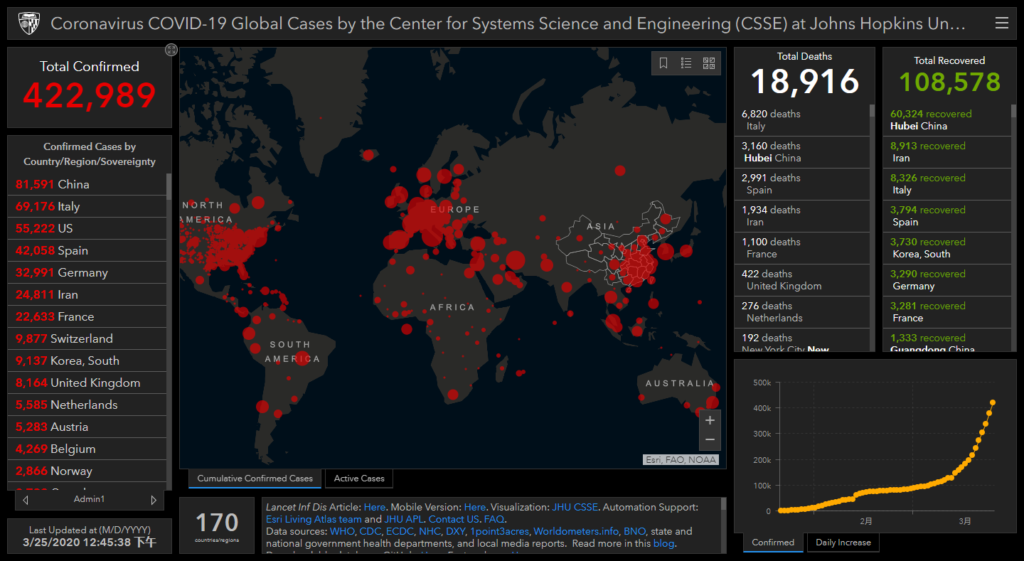
What is COVID-19?
Coronavirus Disease 2019 (COVID-19) is an infectious disease first identified in Wuhan, a city in China.
Source: https://www.who.int/news-room/q-a-detail/q-a-coronaviruses
How does the New Coronavirus spread?
COVID-19 spreads through respiratory droplets produced when an infected person coughs or sneezes. An infected person is contagious during the incubation period (14 days).
Person-to-person is the main way the disease spreads, though touching infected surfaces or objects can also cause infection.
Source: https://www.cdc.gov/coronavirus/2019-ncov/about/transmission.html
Does It spread fast?
It spread faster than middle east respiratory syndrome (MERS) and severe acute respiratory syndrome (SARS), which are caused by different coronavirus. A significant difference is shown visually in the video below.
How can I protect myself?
Quarantine is one of the most important and effective precautions. China imposed a quarantine of more than 50 million people in an aggressive way: extended breaks for schools, business closed up, and people were limited from going outside. These measures worked great to turn the R0 (the number of additional people a person who is infected is likely to infect) of new corona virus to 0.5 from 4.08 in early January. A disease will decline if R0 is less than 1.
If no quarantine is required, you should stay home as long as possible. Below is a video simulating how COVID-19 is likely to spread in a school after the first infected person appears in 4 conditions:
- No protection
- Wearing mask
- Wearing mask and sick people quarantined together
- Wearing mask and students quarantined separately
Symptoms of the new coronavirus
The main symptoms of COVID-19 are fever (88%), fatigue, and dry cough (67.7%).
A few patients have symptoms such as nasal congestion, runny nose, and diarrhea.
Some cases only get low fever, mild fatigue, and no pneumonia.
The reason for less mucus or runny nose is that the symptoms are usually an upper respiratory tract infection (URTI), while new corona virus affects lower respiratory tract mostly.
Source: https://www.vox.com/2020/3/3/21161724/coronavirus-symptoms-covid-19-sars-cough-fever
I’ve been coughing for a while. Do I Have COVID-19?
If you have been coughing for more than 3 weeks, it’s less likely to be COVID-19. It is an acute disease with a cough and fever, which usually develops acutely within a few days.
The coughing accompanied by large amounts of mucus indicates a low likelihood of COVID-19 also, as large amounts of mucus are a manifestation of bacterial infection, especially when the mucus is yellow purulent sputum.
Surprisingly, only 4.8% of infected people had runny noses.
China’s aggressive measures have slowed the coronavirus. They may not work in other countries
Please refer to What to Do If You Are Sick With Coronavirus Disease 2019 (COVID-19) by Centers for Disease Control and Prevention (CDC).
Death rate
The death rate of COVID-19 (around 2.1%) is lower than SARS (9.6%) and MERS (34.4%), whereas the rate differs depending on age, gender, and the existence of comorbid medical conditions. More information is available in this post: Age, Sex, Existing Conditions of COVID-19 Cases and Deaths.
Should I wear a mask?
The CDC does not currently recommend using a mask to prevent healthy people from getting COVID-19.
The fact that healthy people do not need masks doesn’t mean that masks are useless. If you are in an epidemic area, or likely to come in contact with an infected person, masks can still greatly improve the protection. This is why masks should be worn by medical providers who face more infected people than normal.
Read Yes, it is worse than the flu: busting the coronavirus myths for more information about masks.
Am I in an epidemic area?
Please refer to the dynamic map Coronavirus COVID-19 Global Cases by Johns Hopkins CSSE to confirm the situation near you.



